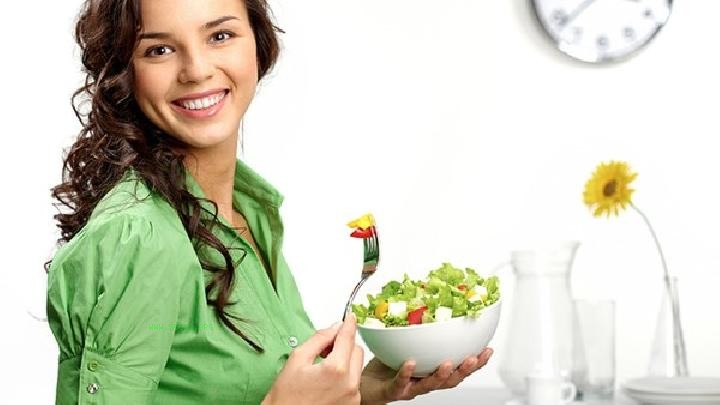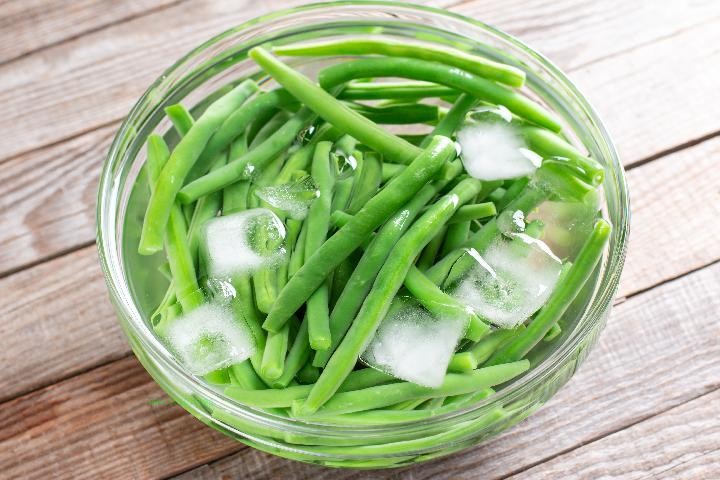Stomach diseases require "three parts treatment and seven parts nourishment", and many people know this saying. Dietary regulation is the most direct way to nourish the stomach, and can also be said to be the top priority in nourishing the stomach. There is a saying in traditional Chinese medicine that "the stomach likes warmth and dislikes cold", which means that the stomach is very sensitive to temperature and likes warm food, but fears cold and icy food. Therefore, in winter, try to avoid or eat less raw and cold fruits and vegetables; Attention should also be paid to cooking, and cold dishes should be consumed in moderation; Food taken out of the refrigerator should not be consumed directly. It should be stored at room temperature or heated before consumption. In addition, people with chronic stomach diseases should also pay attention to the "Eight Appropriate" dietary principles.
It is advisable to eat less and concentrate more: The amount of food per meal should be small, only about 70-80% full. Avoid overeating. The variety and cooking of food should be fine and easy to digest. Rough and coarse fiber containing food is not easy to digest and may stimulate the gastric mucosa, causing stomach pain, bloating, etc. Warm and clean: The temperature of food should be warm and appropriate. Do not eat or drink cold or icy food. Even though the weather is cold, you should also avoid eating too hot food. Food ingredients must be cleaned thoroughly, and attention should also be paid to cleanliness and hygiene when cooking food.
Warm and clean: The temperature of food should be warm and appropriate. Do not eat or drink cold or icy food. Even though the weather is cold, you should also avoid eating too hot food. Food ingredients must be cleaned thoroughly, and attention should also be paid to cleanliness and hygiene when cooking food.
Fresh and light: Food must be fresh and avoid eating expired or stored food for too long. Cooking food should be light, avoiding greasy and heavy flavored foods, and avoiding spicy and stimulating foods.
Soft and slow: Choose foods that are easy to digest, cook them thoroughly to make them soft and easy to digest, and avoid baking, grilling, and hard foods to avoid adverse stimulation of the gastric mucosa and increase the burden on the gastrointestinal tract. Eat slowly, chew slowly to aid digestion, and avoid wolfing down food.
Recommended Winter Stomach Nourishing Schedule
Drink a cup of warm water at 7:00. Drinking water early in the morning can replenish the water lost throughout the night and fully nourish every corner of the body.
It should be noted that in the morning, when the body's yang energy is generated, drinking cold water is a "counter trend" and can easily cause adverse stimulation to the stomach.
Have hot food for breakfast at 8:00. The survey shows that the probability of liver and gallbladder diseases caused by skipping breakfast is 11.7%, and the probability of causing stomach diseases is as high as 36%. A nutritionally balanced breakfast should include several major categories of food, including grains, dairy products, meat, soy products, as well as fruits and vegetables. Exercise at 9:30 in the morning and don't get cold. Due to the proximity of the stomach to the abdominal wall, only a small amount of muscle, fat, etc. are wrapped around the periphery, making it susceptible to "coldness". Therefore, when elderly people do morning exercises in winter, they must do a good job of keeping their stomachs warm. It's best to go out for exercise after the sunshine is bright, and take care of your waist and abdomen during exercise.
Exercise at 9:30 in the morning and don't get cold. Due to the proximity of the stomach to the abdominal wall, only a small amount of muscle, fat, etc. are wrapped around the periphery, making it susceptible to "coldness". Therefore, when elderly people do morning exercises in winter, they must do a good job of keeping their stomachs warm. It's best to go out for exercise after the sunshine is bright, and take care of your waist and abdomen during exercise.
Drink soup before lunch at 12:00. In situations where food is relatively dry and saliva secretion is insufficient, an appropriate amount of soup is beneficial for digestion and absorption, especially during the winter when the stomach and intestines are "lazy". Soup can dilute saliva and gastric juice, but its impact on intestinal digestive fluids is minimal. Be careful not to swallow rice and soup together. Rice that has not been thoroughly chewed can easily lead to indigestion.
Talk to old friends at 15:00. Many people lose their appetite after getting angry, and those with pre-existing stomach problems can worsen their condition. In winter, people's mood tends to become low with the temperature. Chatting with family and old friends can warm up the heart and the stomach. Don't be too full for dinner at 18:00. It is necessary to control it at "70-80% full". Eat a little less at each meal and add a moderate amount between two main meals to maintain the total amount without starving the stomach. Standing at 19:00 to aid digestion. People who are prone to a burning sensation in the stomach should avoid lying down or sitting for a long time after meals, as it can easily reflux into the esophagus and worsen symptoms. Do not engage in strenuous exercise within half an hour of dining.





Comments (0)
Leave a Comment
No comments yet
Be the first to share your thoughts!